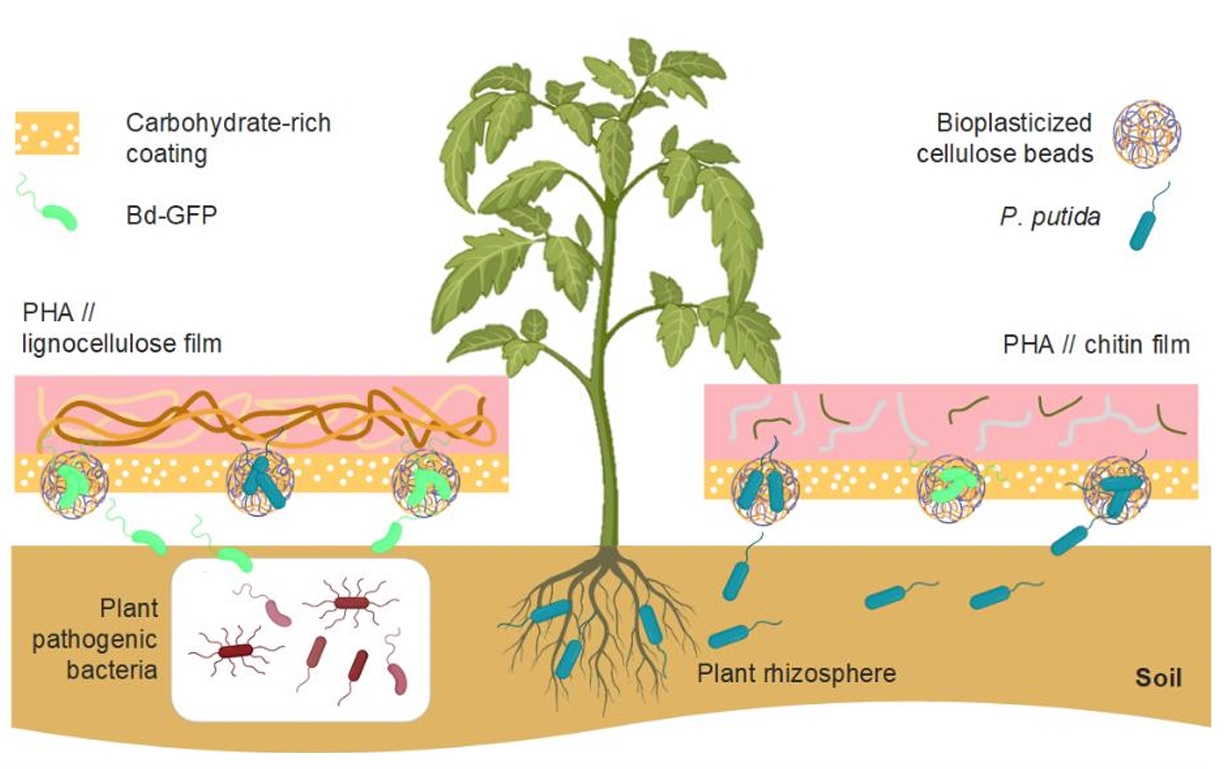TÍTULO DEL PROYECTO:
Biohybrid materials based on biopolymers and bioactive cargos with programmed OPErability in the eNVIROnment (OPENVIRO).
TÍTULO DEL SUB-PROYECTO-1:
SMART bio-based materIALs with programmed performance in the environment (SMARTERIAL).
TÍTULO DEL SUB-PROYECTO-2:
Valorisation of AGROindustrial wastes to foster sustainable active MATerials for agricultural practices (AGROMAT).
FINANCIADO POR:
Ministerio de Ciencia, Innovación y Universidades (PID2023-146557OB-C22)
FECHA DE INICIO:
Septiembre 2024
FECHA FINAL:
Agosto 2027
COORDINADOR e INVESTIGADOR PRINCIPAL subproyecto-1:
Prof. A. Prieto
INVESTIGADOR PRINCIPAL subproyecto-2:
M.J. Fabra





